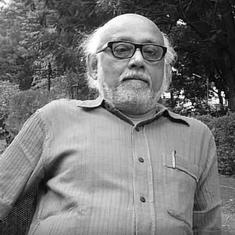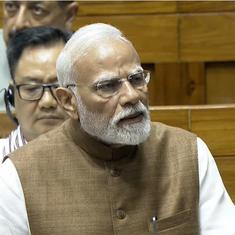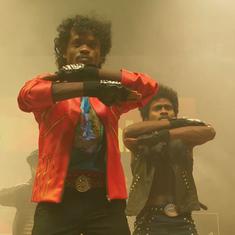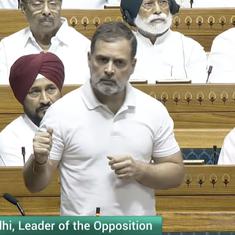When Rahul Gandhi returned from an unexplained 56-day long sabbatical in April 2015, party cadres were immediately struck by the Congress vice-president’s new avatar. The Nehru-Gandhi scion was suddenly more vocal and visible as he plunged headlong into battle with the new Bharatiya Janata Party-led National Democratic Alliance government.
Adopting an unusually aggressive stance, Gandhi succeeded in unsettling the Modi government with his “suit-boot ki sarkar” jibe, which implied that the government watched out only for the interests of the well-to-do. The remark hit home. Fearing that it would be branded “anti-poor and anti-farmer”, the ruling alliance was forced to drop its efforts to amend the Land Acquisition Act passed by the previous Congress-led United Progressive Alliance government. The amendments the Modi government wanted in that Act included getting rid of restrictions, like consent and social impact assessments, for certain kinds of land acquisition.
However, Gandhi’s newly-acquired sheen soon wore off. His inability to stem the rot within the Congress, his penchant to disappear abroad frequently and his periodic gaffes reduced him to the subject of ridicule. He was, once again, seen as a disinterested politician with questionable leadership qualities and poor oratorical skills. While his own party cadres were unsure about his capabilities, the BJP’s efficient communications and social media department ensured that Gandhi was unable to brush off the pejorative “pappu” tag.
Connecting with the people
After struggling to be taken seriously, Gandhi appears to be hitting the right notes once again. As he prepares to take charge as Congress president, possibly after Diwali, he is being seen in a new light. His recent visit to the United States where he interacted with university students, academics and members of the Indian diaspora, and his subsequent campaign trip to poll-bound Gujarat, has caught the attention of both Congress cadres as well as the people at large. Social media is suddenly kinder to him. He is no longer being trolled on the same scale as he was so far. His own social media department has become more active, even sharper, under its new chief Divya Spandana, better known as Ramya.
As the response to his recent tour in Gujarat revealed, Gandhi succeeded in establishing a connect with the audience with his conversational style of campaigning, his headline-grabbing one liners and his focus on economic issues like the problems people have with the implementation of the new Goods and Services Tax regime, growing unemployment, the agrarian crisis and overall poor development in the prime minister’s home state.
A recent report in the news website The Wire, that a company run by BJP president Amit Shah’s son Jay Shah saw its revenues increase from Rs 50,000 in 2014-’15 to Rs 80.5 crore the next year, coinciding with the period Amit Shah took control of the BJP and Narendra Modi was elected prime minister, provided Gandhi with additional ammunition to launch a blistering attack against his chief political adversary.

What has changed?
So what has brought about this change? Has Gandhi reinvented himself once again? Has he changed his campaign style? Is he focusing more on people’s issues? Or is the Congress vice-president being taken more seriously because the public mood has changed? Is Gandhi looking good primarily because the Modi government is no longer being viewed as favourably as it was a few months ago?
Congress insiders say that Gandhi has been consistently highlighting pro-people issues even when the Manmohan Singh-led government was in power. They said that the farmer-friendly Land Acquisition Act that the UPA enacted was based on his inputs while it was Gandhi who pushed for universal coverage in the rural employment guarantee programme. It was also at his behest that the UPA government allocated a special financial package for the chronically drought-prone Bundelkhand region and the weavers of Varanasi. But all his initiatives failed to register with the people or with his party cadres as these did not translate into electoral victories. On the other hand, the Congress suffered a humiliating defeat in the 2014 general elections and subsequent Assembly polls in Bihar and Delhi. The Congress has since been reviled as a corrupt and incompetent party.
But the mood is gradually changing. More than three years after the BJP rode to power at the Centre with an unprecedented victory, the Modi government finds itself on the defensive, especially on the economic front.
With the Reserve Bank of India and some international organisations painting a gloomy picture of the economy, people now seem to be taking the statements of Opposition leaders like Gandhi seriously.
“Rahul Gandhi has not changed…he is continuing to highlight the same issues as earlier,” said a former Congress minister. “But an aggrieved public is now far more receptive to him.”
The former minister added: “If people are looking up to him it is because he is a default option. Despite its reduced strength, the Congress still remains the main Opposition party and Rahul Gandhi is its leader.”
Congress leaders said that till now Gandhi was at a disadvantage because Prime Minister Narendra Modi’s credibility was sky high and people were unwilling to listen to or believe a contrary viewpoint even when it was backed with facts.
They say that the situation has now changed.
“What has happened is that the issues being raised by Rahul Gandhi are now resonating with the people,” said former minister and Congress functionary RPN Singh. “They have realised that the tall promises made by Modi are only talk...he has failed to deliver on them.”
‘A little of both’
Communist Party of India leader D Raja said that a combination of factors are at play. On the one hand, there is growing resentment against the Modi government over the economic slowdown and the mess in the agriculture sector and on the other, Gandhi is articulating these issues more effectively.
“Not only is Rahul Gandhi raising the right issues, he is also framing his arguments better and is also being able to converse with the people,” said Raja.
Congress general secretary BK Hariprasad believes that Gandhi’s US trip proved to be a turning point for him and the party. The Congress vice-president, according to him, demonstrated through his interactions with students and academics that he is not afraid to take tough questions and is capable of holding his own.
“Modi will never be able to do the same,” said Hariprasad. “In his [Modi’s] case, it is one-way communication. Rahul Gandhi proved he is a true democrat.”
After the US, Gandhi visited Gujarat, where he took on the BJP that has ruled the state since 1998 in his public meetings, drawing an enthusiastic response from the crowds.
Gandhi just an entertainer: BJP
While BJP leaders privately admit that they are working overtime to demolish Gandhi since he is now being heard more seriously by the people, they are predictably unwilling to say so publicly. They insist that Gandhi is making no impact whatsoever in Gujarat and that Modi’s popularity remains undiminished.
“Where is the Congress in Gujarat?” asked BJP’s Rajya Sabha member Prabhat Jha. “It has no organisation and no leaders.” He said the BJP was focusing its attack on Gandhi not because they believe he poses any threat to the party but because he is the main Congress leader now and there is no reason why they should spare him.
“Who else will we target if not Rahul Gandhi?” said Jha. “Though he is nothing but an entertainer. He is the Congress party’s Keshto Mukherjee.” This was a reference to the veteran Bollywood comedian, popular in the seventies.









